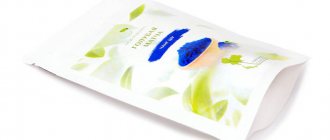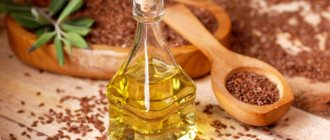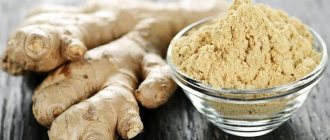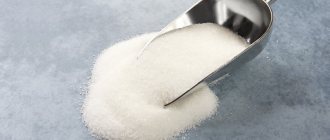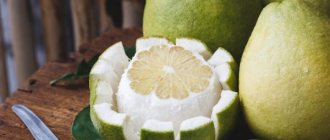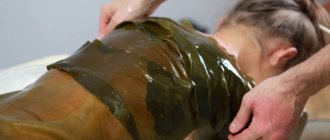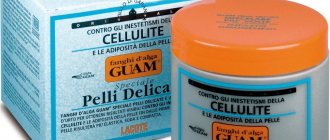Seaweeds are known for their key nutrients and health-promoting compounds, and Fucus bladderwrack is no exception. In fact, it is one of the most common seaweeds and has a very high nutritional value, especially due to the iodine it contains.
Like kelp and sea moss supplements, bladderwrack replenishes nutritional deficiencies and improves overall health.
What is Fucus bladder?
Vesiculosus is a common seaweed that is scientifically known as Fucus vesiculosus.
It is a type of brown algae that is characterized by its branches with small air sacs.
Fucus vesiculosa seaweed has high levels of dietary fiber, minerals and vitamins. It is known for its exceptional combination of macro- and micronutrients, which explains why it was collected and used as a food product in the countries of Far East Asia and the coastal countries of Western Europe.
Today, due to its ability to improve thyroid health and possibly promote weight loss, these seaweeds have gained recognition in many countries.
Characteristic
Fucus vesica is a perennial plant from the Fucus family. It has the appearance of a shrub, the body of which is presented in the form of lamellar branched parts, covered with olive-green or brownish thallus. The length of one branch can be from 1 to 1.5 m. Its base, with which the plant is attached to rocks and boulders, is disc-shaped, and the free-floating branches are lamellar lobes, along the middle line of which runs a vein containing several bubbles on each side, filled with air. It is thanks to the latter that the branches of fucus, while under water, can take a vertical position.
Most often, bladderwrack is found in coastal rocky areas of the Baltic, North, White and Barents seas, as well as the Atlantic and Arctic oceans, where it is usually found in the middle or lower layer of water. Moreover, there are quite a few zones in which this algae forms entire underwater meadows. They become clearly visible during low tides, when rocky areas are exposed. At this time, it is very convenient to collect and prepare fucus by hand - the branches are caught using nets, tied into bundles, cleaned of adhering dirt and shells, and immediately laid out to dry. Under the influence of the sea breeze, the algae dry out very quickly and acquire a dark brown color and a characteristic sea aroma. In this form, Fucus vesicularis is a medicinal raw material.
Beneficial properties of Fucus vesicularis
The nutrients contained in seaweed give it many beneficial properties. Research published in the scientific journal Marine Drugs shows that fucus contains a variety of bioactive compounds that have antioxidant, anti-inflammatory, antitumor, weight loss, anticoagulant, and antidiabetic properties (1).
These are the beneficial properties of Fucus vesiculosa.
Provides the body with iodine
Iodine is an essential nutrient and is essential for thyroid health and many other body functions. It protects against some types of cancer, supports brain function, and is critical for healthy growth and development.
Bladderwort and other seaweeds are iodine-rich foods, so consuming them is an easy way to maintain healthy levels of this important nutrient.
One of the best known benefits of iodine is its ability to support thyroid health. The thyroid gland needs sufficient iodine to produce important hormones such as thyroxine. These hormones regulate critical biochemical reactions in the body, such as the synthesis of amino acids and ensure the proper development of the nervous system.
Iodine deficiency can cause thyroid disease, leading to symptoms such as weight and mood fluctuations, poor metabolism and cardiovascular disease.
Rich in Antioxidants
Bladderwort contains powerful antioxidants, including beta-carotene, lutein and zeaxanthin.
Beta-carotene is a plant pigment that the body converts to vitamin A. It is a powerful antioxidant that plays an important role in maintaining healthy vision, improving skin health and supporting neurological function.
Lutein and zeaxanthin are antioxidants that are also found in leafy green vegetables such as kale. They help maintain healthy vision and eye health by protecting healthy cells and preventing retinal damage.
Research shows that these antioxidants have a protective effect against eye disease and are associated with improved cognitive function. The antioxidants found in seaweed are also used topically to promote healthy aging and improve skin health (2).
Reduces inflammation
The seaweed Fucus vesiculosa contains powerful nutrients that have anti-inflammatory effects, including fucoidans, a class of sulfated polysaccharides. These compounds have been studied for their antioxidant, antitumor, immunomodulatory, and anti-inflammatory effects (3).
Researchers suggest that fucoidan alleviates inflammatory conditions by significantly reducing proinflammatory cytokines.
Due to its anti-inflammatory properties, brown seaweed is also used as an alternative treatment for arthritis and applied topically to relieve insect bites and burns.
Promotes digestion
Research shows that seaweed is rich in fiber, which contributes to its health benefits. When taken orally, kelp acts as a mucilage, meaning it creates a gel-like substance that relieves constipation, bloating, cramps, and digestive disorders (4).
In addition to constipation, Fucus vesiculosum tablets or supplements are also used to cleanse the body or promote detoxification.
Thanks to the fiber contained in fucus, consuming it may also increase feelings of fullness, potentially promoting weight loss.
May promote weight loss
Fucus vesicularis contains L-fucose compounds, which are believed to help treat obesity. One animal study found that L-fucose reduced body weight gain, fat accumulation, and elevated triglyceride levels when fed to mice on a high-fat diet (5).
The researchers concluded that this compound could be a new strategy for treating obesity and fatty liver disease caused by a high-fat diet.
Supports Heart Health
There is some evidence that Fucus vesiculosum helps support cardiovascular health. One study published in Oxford Academic found that fucoidans contained in fucus exhibit potent antithrombin and anticoagulant activity in platelet tests (6).
Research also shows that Bladderwort may increase HDL cholesterol levels. HDL cholesterol, or high-density lipoprotein cholesterol, is known as “good cholesterol” because it actually collects excess cholesterol in the blood and returns it to the liver, where it can be broken down (7).
By increasing HDL cholesterol levels, brown algae may reduce the risk of atherosclerosis and cardiovascular disease.
May reduce the risk of cancer
A study of three women found that the seaweed Fucus vesiculosa may be an important dietary component responsible for reducing the risk of estrogen-related cancers observed among Japanese people (8).
Researchers have found significant antiestrogenic and progestogenic effects after taking kelp. They concluded that consumption of Fucus vesiculosum may increase the length of the menstrual cycle and have an antiestrogenic effect in premenopausal women.
However, to fully understand the potential of Fucus vesicularis in the prevention and treatment of breast cancer and other estrogen-related diseases, well-controlled clinical studies are needed.
Summarize
- Bladderwort is a common brown seaweed that is valued for its iodine, antioxidants and fiber content.
- This brown algae is used to replenish iodine, promote digestion, weight loss and healthy aging, and support heart health.
- Like all seaweeds, bladderwrack is a nutrient-dense food that contains a number of powerful antioxidants and compounds.
Tags: Seaweed
- Related Posts
- Wheat sprouts: benefits and harm to the body
- Baking soda: benefits and harm to the body, application
- Bee pollen: beneficial properties, how to take
« Previous entry
Application and dosage
Bladderwort can be eaten raw or cooked. Since it does not have the most pleasant taste, it is often dried and ground or consumed as tea.
It is available as an herbal supplement in powder and capsule form. A combination with sea moss in capsules or powders is also common.
There is no recommended dosage for Fucus vesiculosum as the dosage depends on your health and needs. Before using fucus to improve thyroid health or lose weight, talk to your doctor about the correct dosage and amount of iodine needed for your situation.
How to use
Before taking Fucus seaweed, you should read the instructions and consult your doctor. In most cases, it is enough to eat one teaspoon before meals and wash it down with still mineral water. If you don’t like the taste of the product, you can add the powder to food. In this way, the beneficial product enters the body without an unpleasant aftertaste. The advantage is that the seaweed has a salty taste, which allows you to reduce the amount of salt.
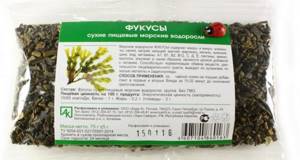
Another way to use Fucus is to use it as a snack in a situation where it is not possible to eat on time during the day. To prepare the tincture, you need to mix one spoon of powder with 200 ml of boiling water, and then leave the composition for 12 hours. In the future, the finished mixture should be consumed throughout the day.
Side effects and contraindications
If you experience abdominal pain, abdominal cramps, chest tightness, swelling or rash after consuming Fucus vesiculosum, discontinue use immediately. These are signs of a bad reaction or allergy.
Some people are allergic to iodine, so consuming fucus may cause adverse or even dangerous side effects.
If you have hyperthyroidism, you likely do not need to increase your iodine levels, so talk to your doctor before consuming seaweed or taking a bladderwrack supplement.
Interactions
There are a number of interactions with Bladderwort that you should be aware of before using it for any health problems. Fucus may not be safe to consume at therapeutic doses if you are already taking blood thinners or medications that reduce inflammation such as NSAIDs, aspirin, and ibuprofen.
People taking medications for thyroid conditions, such as levothyroxine, desiccated thyroid, and liotrix, should consult their physicians before using Fucus vesiculosum powders or supplements.
Anyone with kidney or thyroid problems should not use brown algae supplements.
Comparison with other algae - Laminaria, Spirulina, Chlorella
When purchasing a product, many people ask which algae to choose: Fucus or Laminaria - which is better. If we analyze the needs of residents of the Russian Federation, the second algae is in great demand. The reason is that it is more convenient to recycle and is available for purchase. The necessary raw materials are easy to buy in China.
We also recommend: Walnut: benefits for men
But there is also a minus here. There are environmental problems in China, so the composition may contain toxins and heavy metals. Against this background, Fucus is more attractive, which grows in the ecologically clean waters of the White Sea and is safe. Both algae contain fucoidan, but Fucus contains four times more. The advantage is that Fucus’s composition is as close as possible to the characteristics of the human body, therefore it is better absorbed by the body.
For comparison, other algae can be cited:
- Chlorella. The plant contains 5-10 times more chlorophyll. This product quickly removes toxins from the body and cleanses it. Another feature is the presence of 50-60 percent protein and all eight amino acids. There is 10 times more carotene here than in apricots. Lots of zinc and iron.
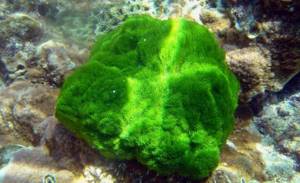
- Spirulina. Another supplier of protein, which is more abundant than meat. Algae is used to make food for astronauts. In addition to protein, it contains healthy fats, vitamins and microelements. Like Fucus, Spirulina is well absorbed. Sold in tablet and powder form.
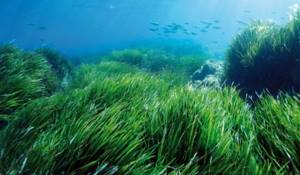
As can be seen from the above, Fucus has a number of features that set it apart from its competitors. The main advantages are a rich spectrum of action, the presence of iodine and acids important for the body.


